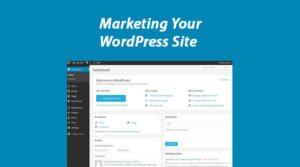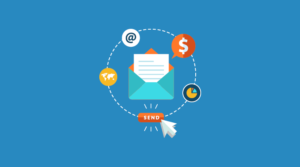Why You Need to Plan Before Building Your Website

Online businesses spring up every day online. The Internet has opened up the world to everyone from traditional bricks and mortar stores, corporations and Mom and Pop stores to enterprising individuals who conduct their entire operation online.
However, growing your website is much harder than simply throwing up a few pages in the vast space of the cyber world.
Fast Isn’t Always Better
The Internet allows everyone to compete on a fairly even playing field, and takes most of the dollars out of the equation, letting the little guy battle with monster corporations for consumer attention. Because of that, websites are often created in the blink of an eye, but many times fall short because they lack the planning necessary to create a solid business presence.
The ease with which individuals can get started online often masks the fact that business is business. Even online, a business needs to be treated and nurtured the same as you would an off-line company. Much like, say a hunter nurtures his hunting dogs so that they don’t get out of shape and perform poorly, you have to make sure the environment and care that goes into your website has the proper elements to ensure its survival and subsequent performance.
What’s the Purpose?
In the case of a hunter, he has to determine what his likes and dislikes are, and plan his hunting accordingly. He also has to take into consideration the environment he’ll be operating in, what his chosen prey (sales, leads etc.) is, and the tools (hunting dogs, rifles, GPS dog tracking collars etc.) that he will be using.
Just like that hunter, when I develop a website I have to determine what needs my product has, what the market is, and if I’ve used up any of the site’s requirements on a previous marketing plan.
By giving my websites some diversity, I save myself a lot frustration, time and money. My web pages are geared toward high-quality reviews that give consumers the information they need to make good decisions for their lives. However, when I created a web page on dog locating devices such as the Garmin Astro 200, I wanted to be sure I’m not competing with myself on another website, or indeed web page, that sells a similar product. It’s all part of the planning.
Your ideas for your website will spring from what your product is, and who your audience is. Finding the right path is simple if you take the time to understand the people who will be using what you offer.
Who’s Your Audience?
I also need to know my audience, just like the hunter needs to know what the environment is for a particular quarry, and if he can sell or donate what he doesn’t need himself. He also has to know where to send his prey for the best chance of the most value for it. e.g. it’s no sense hunting for the sake of hunting, if no one you know even likes receiving a gift of wild meat.
This was true when I developed the web page on GPS Dog Collars. In order to get the best return from my work and investment, I needed to know what my target audience was, and where to find them.
When promoting these dog locating devices it wouldn’t make much sense to create a website geared towards cat lovers would it? Nor would marketing that site in areas where the web traffic is similarly unrelated, say motocross racing enthusiasts.
Rather, I developed a web page with a real life experience of a friend who had trouble keeping valuable hunting dogs alive during arduous hunts, and solved his problem with the help of a good dog collar tracking device. I made sure I created a web page that appeals to both dog lovers, and hunters who enjoy the sport with the help of hunting dogs, and then marketed it in areas where dog owners and hunters are likely to be.
Beyond the initial planning
Beyond the actual planning of your website, it is important to plan the implementation as well. Some important items to remember when creating your website are:
- Ease of navigation
- Broken links
- Load time
Your customers can’t buy what they can’t find. If your pages are hard to find, or viewers have to jump through hoops to get to the page they want, they’re not likely to hang around long enough to buy.
Broken links can kill sales faster than just about any other aspect of a website. Viewer attention spans are short. If they like what you have available, they will click on a link you provide, but if that link doesn’t work, they’re not going to bother with trying to make it work, or find another. More likely, they will simply plug in the item in the search engine box on top of their screen and find it on their own – without you.
Websites that take too long to load because of large picture files, heavy video files or long pages with complicated scripts will turn off viewers too. An over use of Word Press plugins can be deadly as well. This was more of a problem in the past when the majority of viewers had slow dial up Internet, but even in the high-speed age we live in now, it is important to remember that some viewers may still not have fast download speeds.
Getting it Right – With The Precision of GPS
When you spend the time to plan well, growing your website after it is built is actually similar to keeping track of your hunting dogs with GPS precision, it’s easy when you have planned well, and used the right tools.
 Social Media Makes Sales Enablement Easy By Showing How Smart Business Can Be
Social Media Makes Sales Enablement Easy By Showing How Smart Business Can Be 14 Tips To Help You In Marketing Your WordPress Site
14 Tips To Help You In Marketing Your WordPress Site Comparing GetResponse and Infusionsoft: What They Have to Offer for Marketing Your Blog
Comparing GetResponse and Infusionsoft: What They Have to Offer for Marketing Your Blog How SEO Services Can Help Increase Your Website Traffic
How SEO Services Can Help Increase Your Website Traffic
{ 23 Responses }